4 recipes to utilise your end-of-summer capsicum bounty
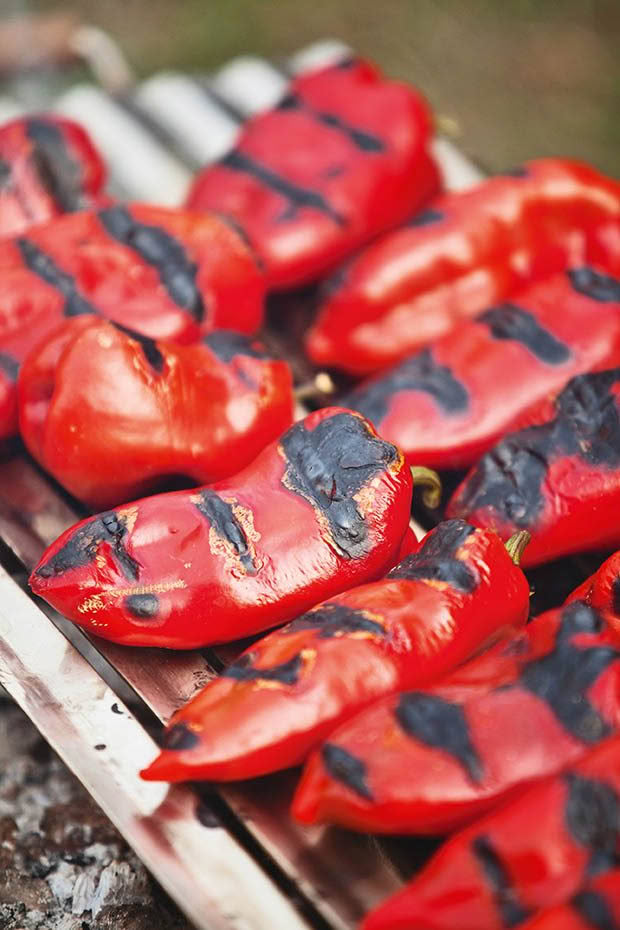
Turn a glut of capsicums into a selection of addictive spicy sauces that will add flavour to your meals all year.
Words: Jenny Garing
In spring, we inherited the use of a large glasshouse. Our neighbours didn’t want to grow anything in it, so we decided to spice things up.
It’s now full of glowing red capsicums and chillies. Eddi the hen helped with all the weeding and worked hard to keep insect levels down. Her efforts and a hot Marlborough summer have produced a glut of red capsicums and quite a few chilli varieties.
Middle Eastern cultures have a lot of recipes for preserving capsicums, in the same way as the Italians do with tomatoes, including pastes, purees, and sauces.
These are bottled or jarred to use throughout the year, adding depth and flavour to a range of dishes.
The Tunisian red harissa on is probably the most addictive – we use it as a chilli-flavoured table sauce.
We use the Turkish pepper paste more like a tomato puree or paste, adding it to dishes for a savoury hit.
The muhammara dip is always a guest favourite. I make it at least a day before serving to allow the flavours to develop.
Turkish pepper paste (biber salcasi)
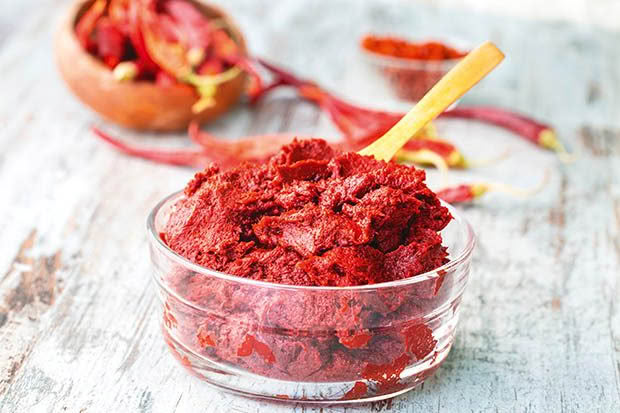
This paste is much milder than a fiery harissa, although you can add chillies if you like things hotter. I love this in kisir (a Turkish tabouli salad) or in shakshuka eggs for brunch.
When Turkish people make it, they leave the paste out in the sun to dehydrate for a couple of days. In our climate, it’s best to do it overnight in a low oven.
INGREDIENTS
6 red capsicums
4 long red chillies (optional)
2 tbsp lemon juice
2 cloves garlic
1 tsp salt
1 tbsp olive oil
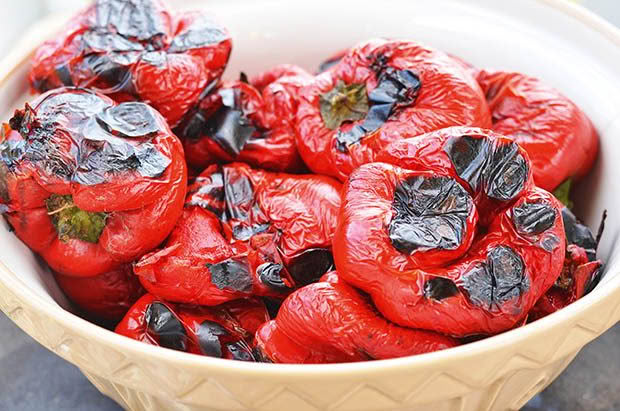
METHOD
Preheat the oven or grill to 200°C.
Roast the whole capsicums and seeded chillis (if using) for 20 minutes on an oven tray. I usually do this on the barbecue for less mess and more char. Turn them occasionally to char all sides. Remove from the heat when the skins blister and are charred black. Transfer to a bag to steam and cool down.
Turn the oven down to its lowest setting.
When cool enough to handle, remove the skins from the capsicums, and discard the seeds and membranes.
Roughly chop the capsicums and chillis and put in a food processor. Add the lemon juice, garlic, and salt, then puree on high until you get a smooth paste.
Place the mixture on a flat oven tray or baking dish. Dehydrate in the oven until it thickens to a rich paste consistency, which takes around 12 hours or so. Stir often. Alternatively, use a dehydrator (follow your unit’s directions), or you can place it out in the sun for 5-6 days.
Transfer to a clean jar or container, and top with the olive oil to preserve freshness. Cover the jar with a lid and store in the refrigerator.
Capsicum, harissa & soft egg salad
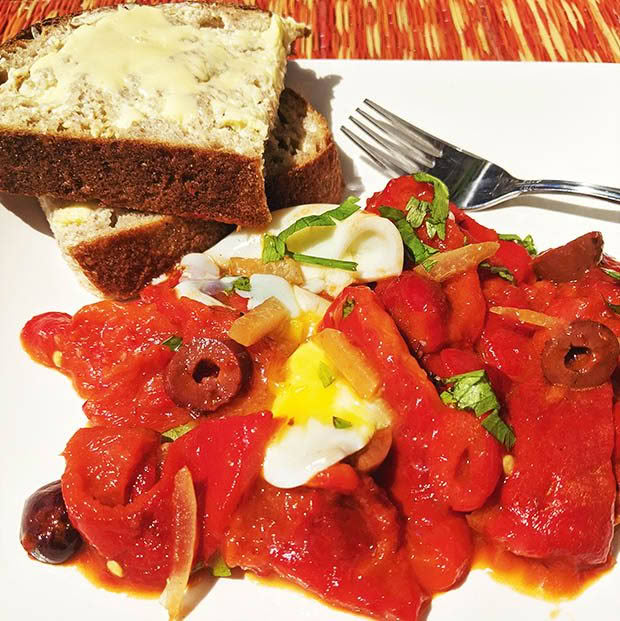
This salad looks stunning, is easy to make, and has a wonderful flavour with the mix of egg yolks and red harissa as the dressing.
INGREDIENTS
8 red capsicums, or use a mix of red, orange, and yellow
4 peeled, 3-minute soft-boiled eggs
1-2 tbsp red harissa, recipe at right
2 tbsp extra virgin olive oil
¼ cup black olives, halved
1 tbsp preserved lemon rind, finely sliced
a handful flat leaf parsley, sliced
salt & pepper
METHOD
Place the capsicums on an oven tray and roast at 180°C for approximately
30 minutes until the flesh is soft and the skins are blistered and blackened.
Put the cooked capsicum in a plastic bag, seal, then leave for 10 minutes before peeling. Scrape out the seeds and membranes and chop into large pieces, then toss with the olives, olive oil, red harissa, and a pinch of salt and pepper. Pile onto a serving platter.
Cook the eggs, then carefully cut in half across the shorter width – the yolks should still be slightly runny.
Place the egg on top of the salad, then scatter the lemon peel and parsley over the top. Serve with some extra red harissa in a small bowl on the side and some nice bread to mop up the sauce.
Tunisian capsicum chilli sauce (red harissa)
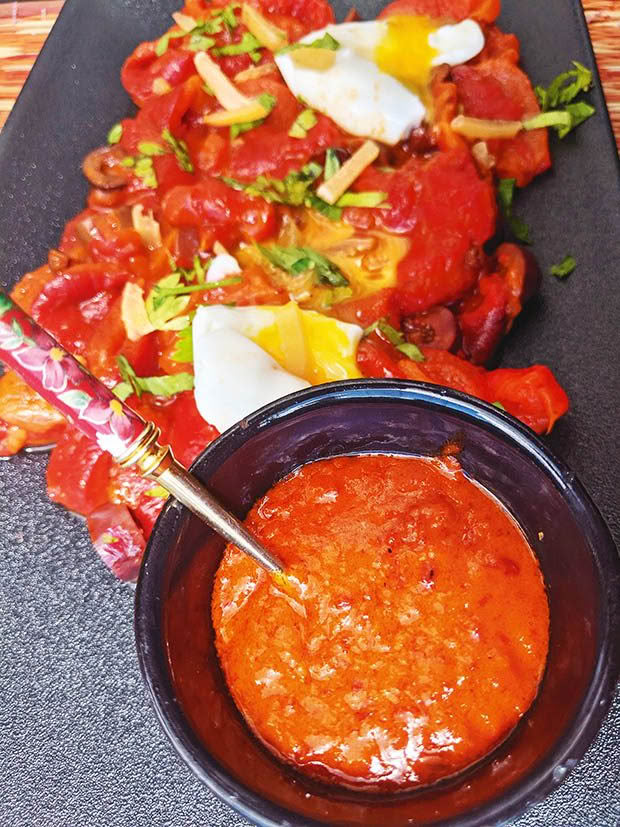
I have a friend who spreads this sauce on his toast to kickstart his day. Unlike Moroccan red harissa, it uses caraway instead of coriander seeds.
Kashmiri chillies aren’t too hot and have a smoky, fruity flavour. If you can’t get hold of them, swap in any dried (or fresh) chillies you have.
You can also add a splash of rose water and dried rose petals to make this into rose harissa.
INGREDIENTS
3 red capsicums
15 dried Kashmiri chillies,
de-seeded, chopped
6 garlic cloves, crushed
3 tsp cumin seeds, roasted
3 tsp caraway seeds, roasted
240ml olive oil
1 tsp salt
METHOD
Soak the chillies in hot water for 15 minutes.
Roast the whole capsicums in an oven until soft and charred. Peel the skins and deseed.
Grind the caraway and cumin seeds in a mortar and pestle or coffee grinder.
Put everything into a food processor and blitz to a sauce consistency. Spoon into sterilised jars and top with a little extra olive oil to seal before putting the lid on. Keep in the fridge.
Muhammara (Turkish capsicum & pomegranate spread or dip)
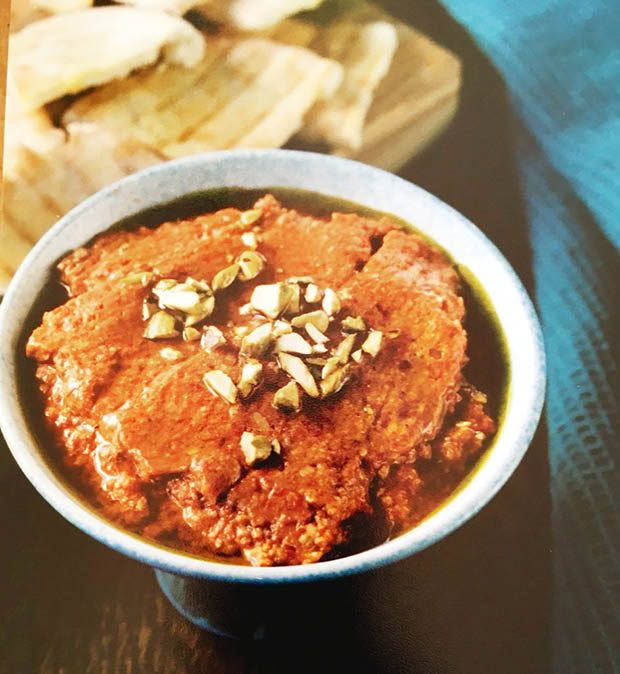
This dish is called acuka in western parts of Turkey and muhammara in the south. The original dish (from Syria) has walnuts and aleppo peppers but this version has chilli flakes, capsicums, cumin, and pomegranate molasses.
Pomegranate molasses is used in southern Turkey a lot. It’s made from the boiled-down juice of the fruit and has a unique flavour, quite different from fresh pomegranate juice. You can buy it in most supermarkets.
INGREDIENTS
1kg red capsicums (about 4 large ones)
2 tbsp olive oil
75g day-old rustic bread, cut into small pieces
1 garlic clove
125g walnut halves, chopped
1 large pinch dried chilli flakes
1 tbsp tomato paste
2 tsp lemon juice
2 tbsp pomegranate molasses
1 tsp ground cumin
1½ tsp of salt
To serve
1 tbsp chopped pistachios
olive oil
flat breads
METHOD
Place the capsicums directly over a low flame, turning until charred (about 10 minutes). Alternatively, put them directly under the grill on high and turn regularly until blackened.
Once done, place in a plastic bag, tie it up, and leave to cool, then peel the skin and remove the seeds. Don’t rinse them in water as this takes away the flavour.
Put the flesh in a food processor with all of the remaining ingredients. Blitz to make a coarse paste, then season with salt and black pepper.
Transfer to a bowl, cover it with plastic wrap and refrigerate for at least 8 hours to allow the flavours to develop.
Drizzle a little olive oil on top, and sprinkle with chopped pistachios. Serve with warm flatbreads or as a sauce on the side of kebabs.
Love this story? Subscribe now!
 This article first appeared in NZ Lifestyle Block Magazine.
This article first appeared in NZ Lifestyle Block Magazine.
